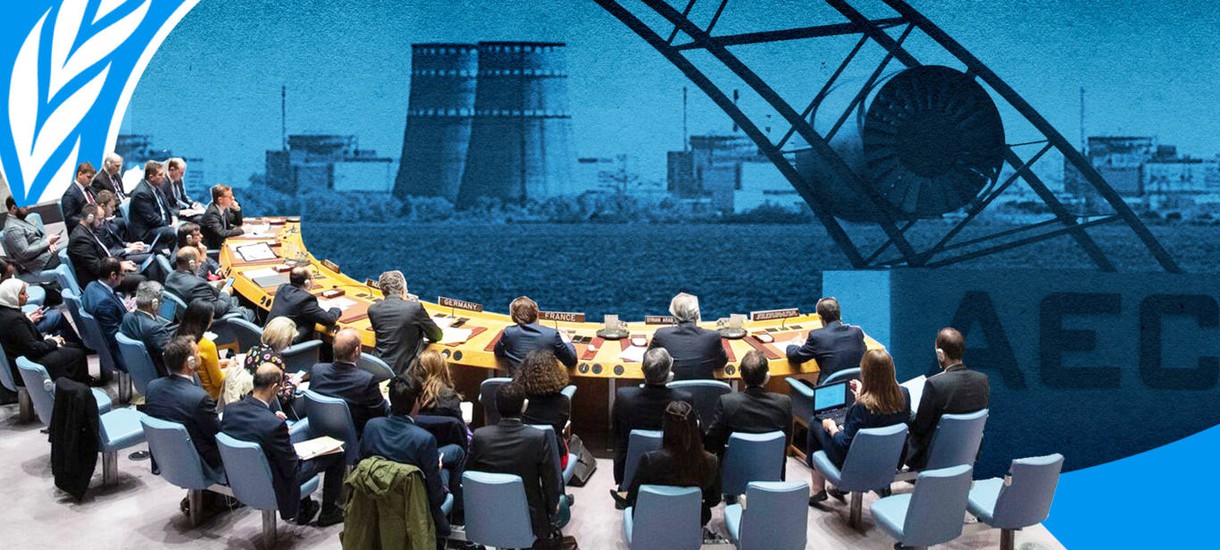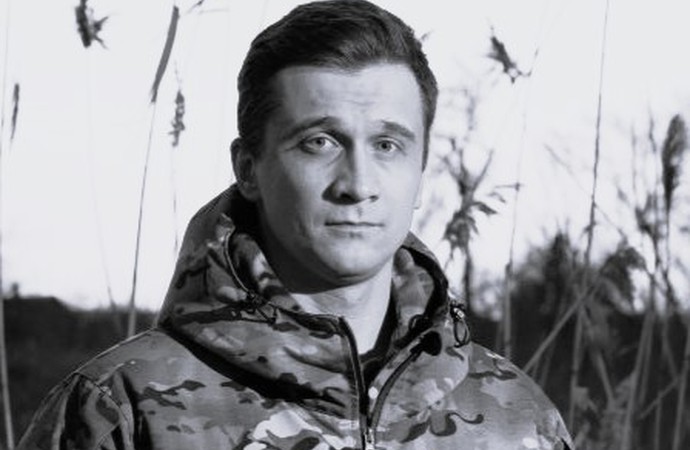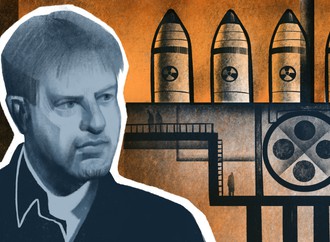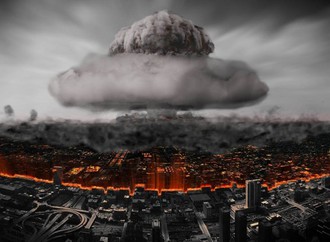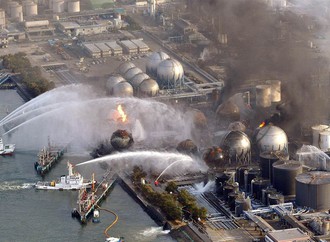
Last week, Ukraine warned the world that Russia may be planning a catastrophic attack on the Zaporizhzhia Nuclear Power Plant.
The reaction to this crisis has been another failure of the United Nations – one that comes in amid a larger failure by the UN to enforce international law and diplomacy against Russia.
Usually, when people discuss problems with the UN, they point to the right of veto or other issues that would require changes to the organisation’s guiding document, the UN Charter, to fix. And although such reforms are needed, they will likely come only after the end of the Russian-Ukrainian war.
But Ukraine needs urgent action now and there are measures the UN can take without changing the charter. It can – and must – establish a demilitarised zone at the Zaporizhia plant and introduce peacekeepers to the area in order to prevent a catastrophe, two steps that have been called for by UN secretary general António Guterres and Ukraine’s state nuclear energy company, Enerhoatom, respectively.
For a world fractured over the war, these could be viable and realistic measures as the situation becomes increasingly desperate. The Russian-Ukrainian war is the first in history to be fought directly in the vicinity of a large nuclear power plant. Not only is this extremely dangerous, but it means the international community’s response could become a precedent if something like this ever happens again.
So far, the precedent being set is disappointing. Despite the efforts of the International Atomic Energy Agency (IAEA), an autonomous international organization within the UN system, the danger has not disappeared.
“The general situation in the area near Zaporizhzhia nuclear power plant is becoming increasingly unpredictable and potentially dangerous,” said IAEA director general Raphael Grossi in early May, a month before the disaster at the Kakhovska Dam and the start of the Ukrainian counteroffensive, which has further increased the risks.
The probability of catastrophe – even from a random incident – is now too high to ignore.
Peacekeeping missions
The 11th emergency session of the UN General Assembly was convened shortly after the start of the full-scale Russian invasion of Ukraine on 24 February last year – the first time the mechanism had been used in a quarter of a century.
As a result, the General Assembly adopted a number of resolutions condemning aggression and annexations, which had a rather symbolic meaning.
But it could have gone further; the assembly has the power to give a mandate to carry out peacekeeping missions, which it last did 67 years ago during the 1956 Suez crisis.
While it is unlikely that any country would send its peacekeepers to Zaporizhzhia without Russia’s agreement, a resolution on Zaporizhzhia Nuclear Power Plant by the UN General Assembly could be a means of pressuring Russia to agree. This would be particularly true if the measure was supported by countries that have so far abstained on or voted against the resolutions regarding the Russian invasion – such as India, South Africa, Vietnam and others.
Countries like Indonesia, which have already talked about the possibility of deploying its peacekeepers in Ukraine, could also strengthen the resolution by confirming their readiness to send peacekeepers to the Zaporizhzhia plant.
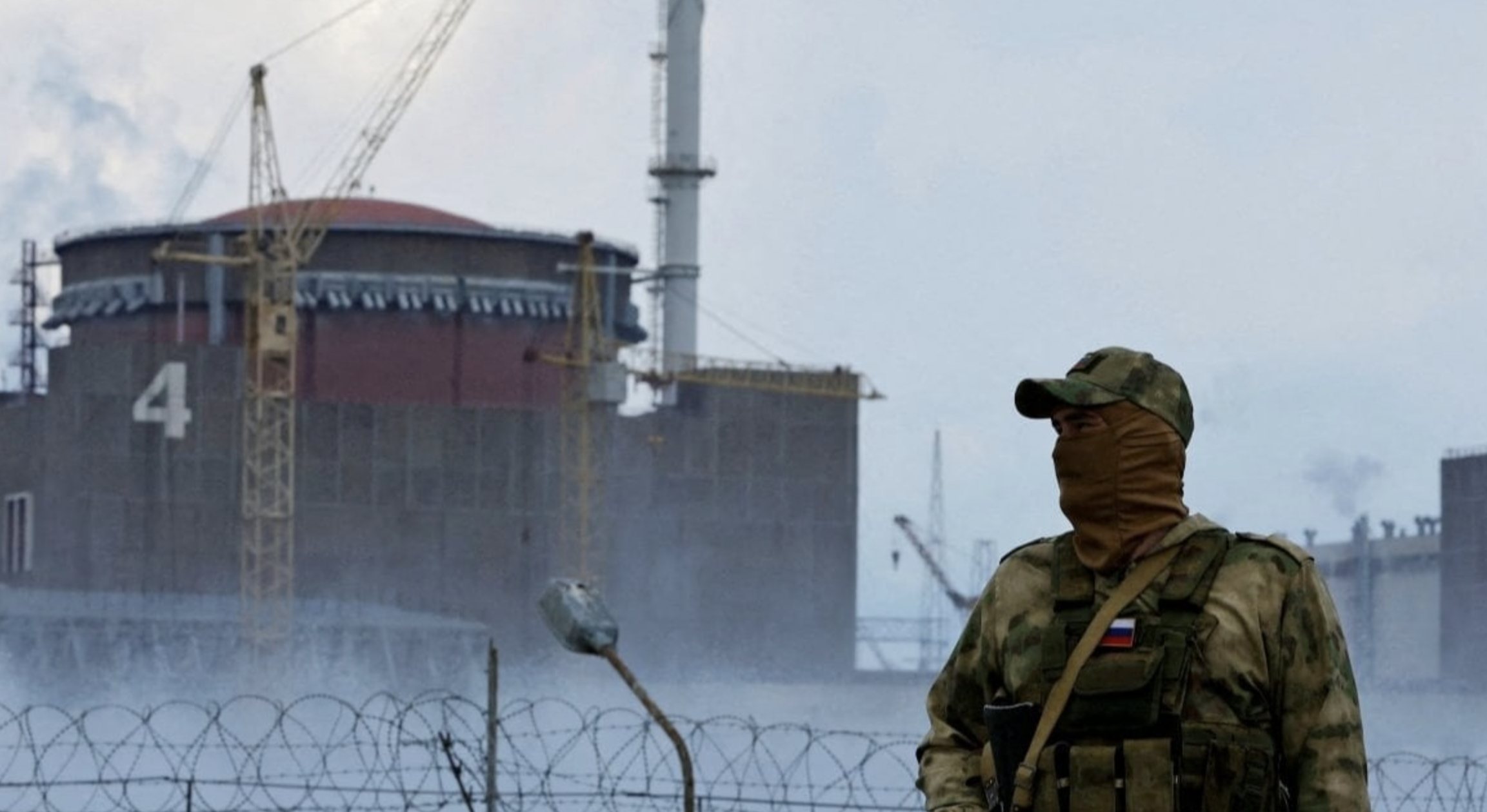
REUTERS / Alexander Ermochenko
UN resolutions that do not give an overall assessment of Russia’s war but aim to address specific issues on which there is a broader consensus, such as nuclear security, could garner much more support. These could be used to prevent the escalation of war and new disasters and, perhaps, to contribute to the further weakening of Russia’s shaky position in the international arena, the cessation of fighting and the beginning of peace negotiations.
A demilitarised zone
Alexander Gilder, a researcher at the University of Reading, has suggested that just as a larger, more general UN peacekeeping mission would be blocked by Russia’s vote on the UN Security Council, a smaller force to support the creation of a demilitarised zone at the Zaporizhzhia plant is also unlikely. That would require the consent of “all parties involved”, which, in effect, also means Russia.
The UN General Assembly “could authorise” this kind of smaller force, Gilder argued in January, but is “unlikely to do so”.
So far, Gilder’s forecast has been correct. But maybe now, after the destruction of the Kakhovska Dam and the destabilisation of the Putin regime, the situation has changed?
All the reactors at the Zaporizhzhia Nuclear Power Plant are currently stopped, official sources claim. Control over the station has no practical significance for Russia now.
Now, then, is the time for the UN General Assembly to create a demilitarised zone at the plant. A country voting against, or abstaining on, this issue would reveal their obvious support for Russia’s nuclear blackmail of Ukraine. It does not matter what position a government takes on the Russian invasion, a matter of nuclear security can and should unite countries that hold different views on the war.
That said, with Ukraine having launched a counteroffensive, the Ukrainian government is likely less interested in a demilitarised zone, seeking instead to return the Zaporizhzhia Nuclear Power Plant under its control as soon as possible.
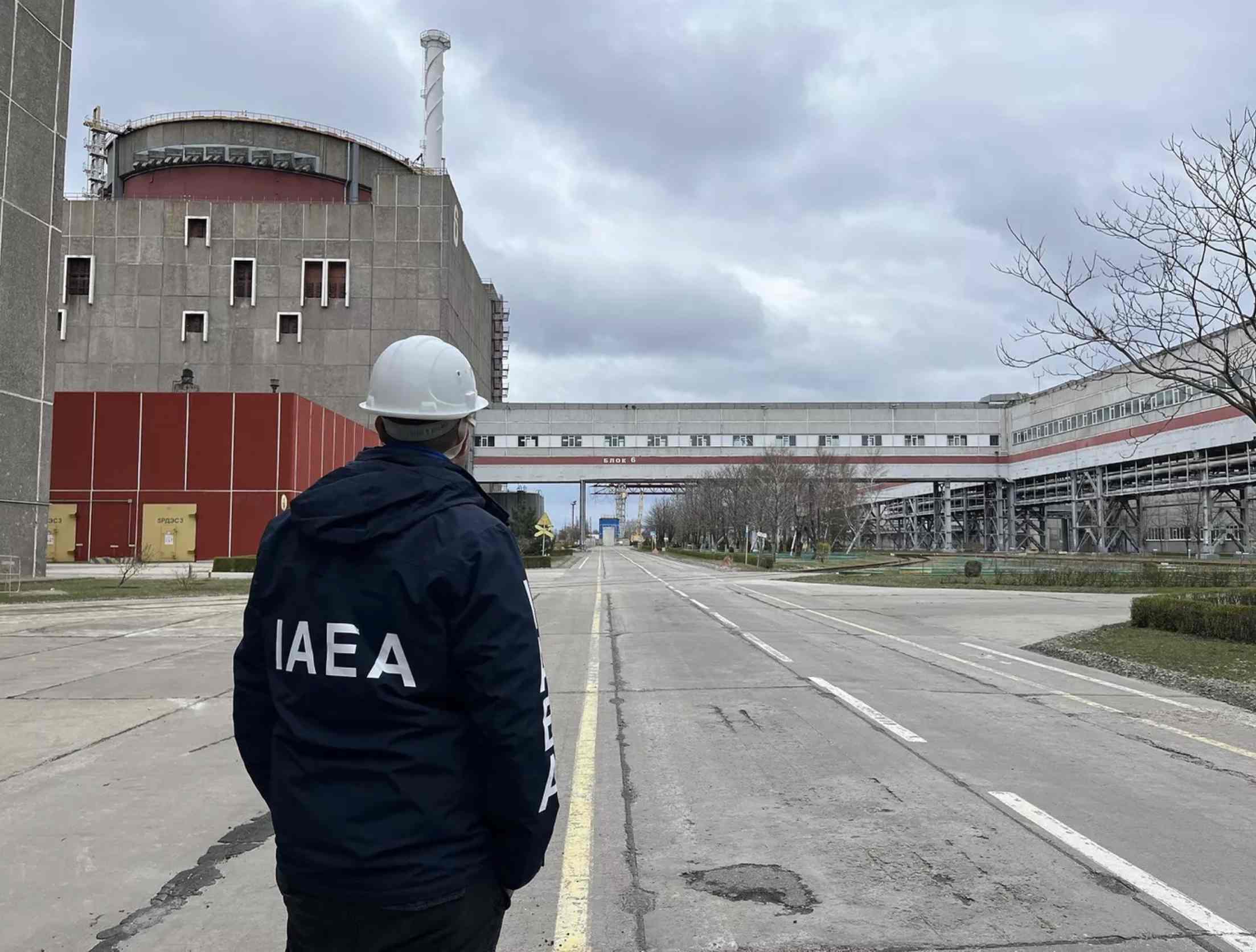
Fredrik Dahl / IAEA Imagebank
But while the war continues, the creation of a demilitarised zone is a much better scenario in terms of nuclear safety. It is realistic to expect that significantly more countries would vote for a UN resolution with a mandate for a specific peacekeeping mission than for a resolution demanding Russia immediately hand the nuclear power plant back to Ukraine.
A UN demilitarised zone should have been created at the plant last year, but it still makes sense. Perhaps now there are more chances for the success of such an initiative. And perhaps this requires public pressure, in particular environmental protection organisations.
Truce
The nuclear power plant is not the only problem that may require a mandate from the UN General Assembly for a peacekeeping mission.
And in the event that Ukraine signs a truce or even a peace agreement with Russia, the assembly may also need to take appropriate steps to support this.
This is particularly important since Ukraine is unlikely to agree to a mission monitoring a ceasefire mandated by the Organization for Security and Cooperation in Europe (OSCE) as the OSCE’s previous mission in Ukraine, between 2014 and 2022, was sabotaged by Russia acting against the creation of a safe zone on the border and the monitoring of the border. A mission by the UN Security Council is also unlikely to be agreed to by Ukraine, given Russia would have a veto. Even if it did not initially block this, it will have the opportunity to veto the extension of the observers’ mandate, as it already did with the UN mission in Georgia.
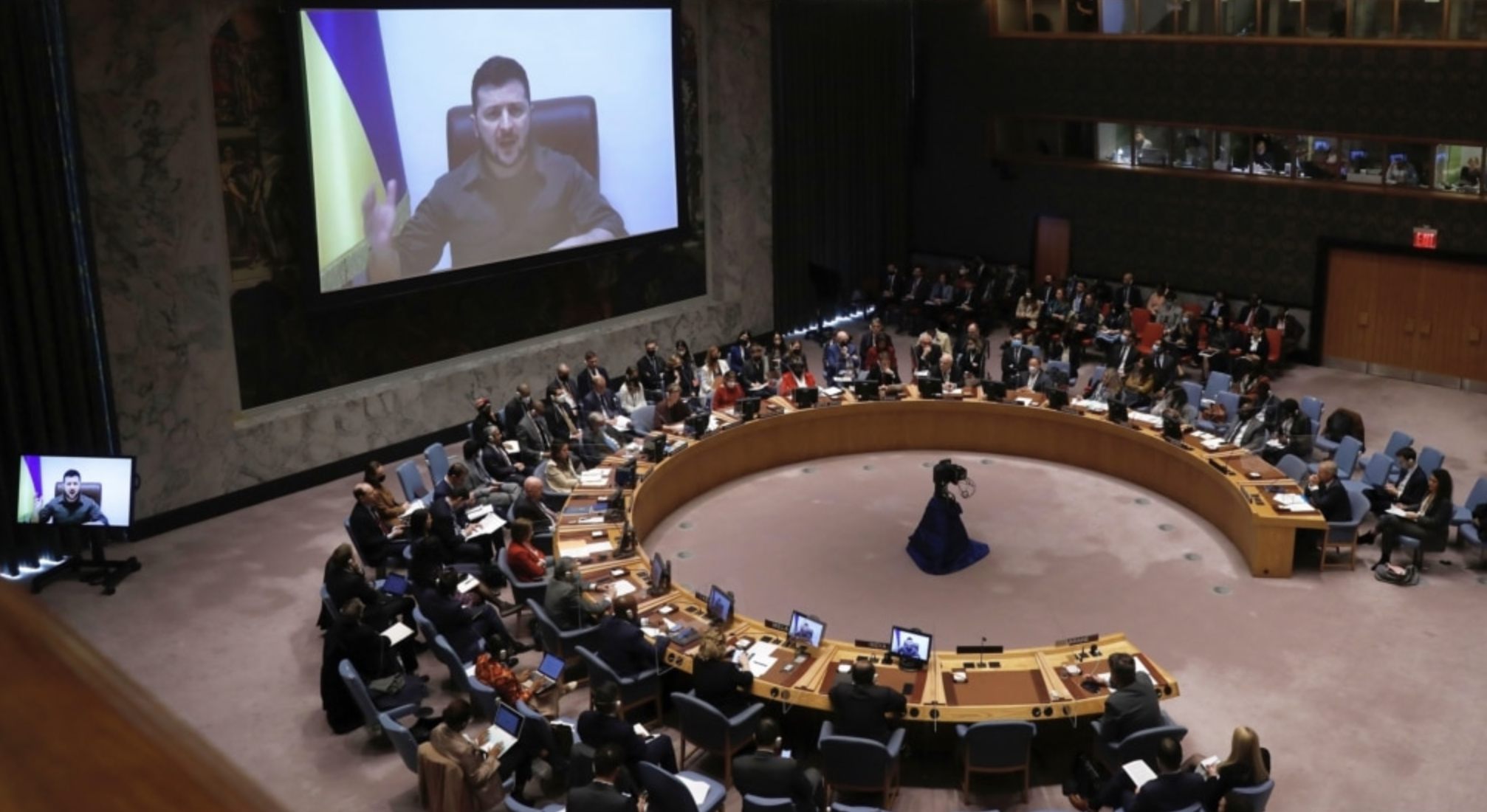
Peter Foley (EPA-EFE)
Even if, after signing an armistice, Russia did not agree to peacekeepers under the mandate of the UN General Assembly, UN peacekeepers could take control of the Ukrainian side of the contact line – as happened in Egypt in from 1956 to 1967 – which is likely to be a more acceptable option for Ukraine. And if the General Assembly peacekeeping mechanism is put in place with the ceasefire, it can speed up negotiations with Russia.
Such steps would strengthen the influence of the UN. It would also mean strengthening the positions of countries of the Global South, which are interested in the reform of the UN. So maybe this is a good opportunity for Brazilian President Lula and other leaders of the Global South, who are calling for negotiations with Russia, to show off their diplomatic skills.
